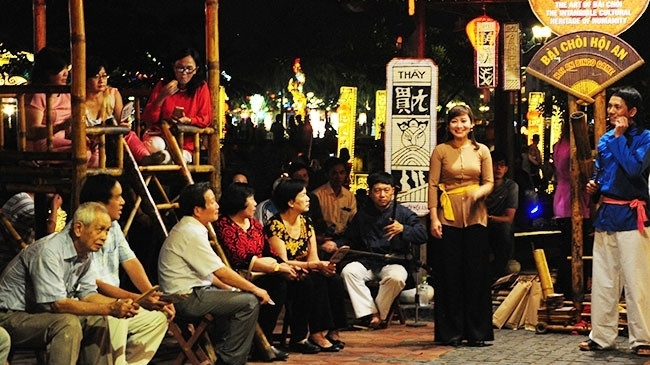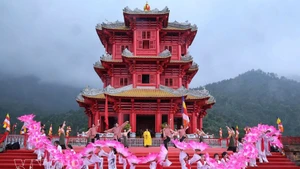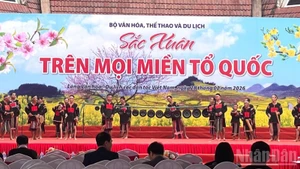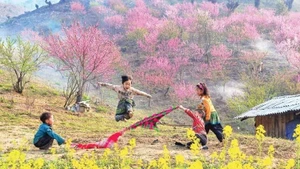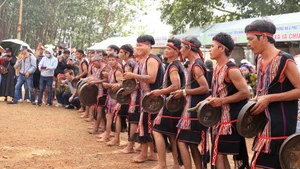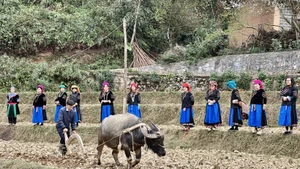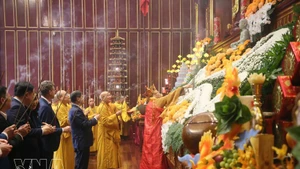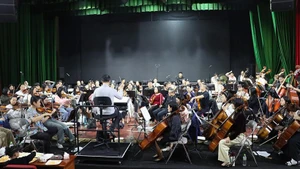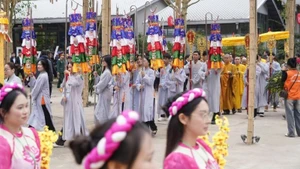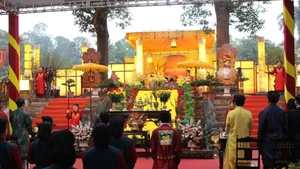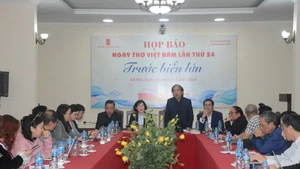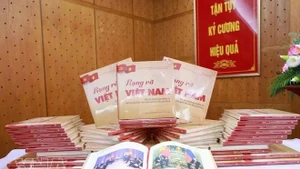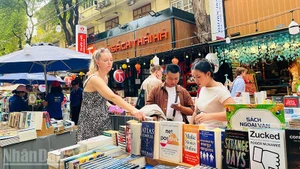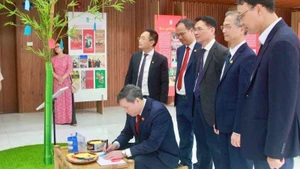>> ‘Bai Choi’ singing recognised as UNESCO Cultural Heritage of Humanity
The charm of a folk music genre
That Bai Choi singing was added to the UNESCO Representative List of the Intangible Cultural Heritage of Humanity on December 7, 2017, has brought great joy and happiness among the Bai Choi artisans and artists, as the essence of Vietnamese culture has once again been promoted to international friends.
Since then, the local authorities of nine provinces in the central region, from Quang Binh to Khanh Hoa provinces, have made even greater efforts to elevate Bai Choi into a major tourist product for visitors to the provinces, which have also helped to improve the income of the Bai Choi artists.
There are currently dozens of Bai Choi singing clubs in the central region, with hundreds of members, many of whom having been awarded with the Meritorious Artist title.
Special attention has also been paid on training younger Bai Choi artists by the Da Nang and Hoi An cities’ authorities.
In Hoi An city, Quang Nam province, classes on Bai Choi singing have been opened for secondary school students, attracting the enthusiastic participation of thousands of students. Since 1998, Bai Choi singing has been in the spotlight at a cultural night event every weekend along the Hoai river in Hoi An, which has received a positive response among visitors, making Bai Choi not only an indispensable part in people’s cultural and spiritual life but also an interesting tourist product of the city.
The Hoi An City Centre for Culture and Sports have promoted the unique art of Bai choi in seven foreign countries, including Thailand, China, the Republic of Korea, Germany, Italy, Hungary and Japan.
Dinh Minh Nhanh, an artist with 16 years of experience in practicing Bai Choi, recalled his happiness when Bai Choi received the UNESCO status, expressing his pride to be part of the success of every Bai Choi performance at the weekend in Hoi An.
“From our ancestors’ repertoire of hundreds of singing lines, we have collected and developed more Bai Choi melodies and tunes,” he said, stressing that his performance is filled with his lifelong passion for the folk genre.
Enjoying the cheerful atmosphere of a Bai Choi performance, 72-year-old Pham Minh Thanh, a visitor from Hanoi, praised the stage as a charming space for the audiences which contributed to honouring Vietnam’s ancient culture and arts.
Honour and responsibility to uphold ancestral treasure
According to Vo Phung, Director of the Hoi An City Centre for Culture and Sports, with the support of the Quang Nam provincial authorities, Hoi An has given priority to recruiting skilled human resources, including talented artists and musical instrumentalists, and improving the living of the Bai Choi practitioners.
UNESCO’s acknowledgement of Bai Choi is not only a source of pride for those working in the cultural sector but it has also raised their responsibilities in preserving and developing the heritage.
Nguyen An Pha, Chairman of Binh Dinh provincial Association for Literature and Arts said that to promote the essence of Bai Choi, it is an urgent to open intense training courses for practitioners to thoroughly grasp the folklore characteristics of the singing style, in order to distinguish Bai Choi from other folk musical genres.
Localities where Bai Choi is practiced must design plans to popularise Bai Choi in the communities, while bringing Bai Choi into schools and tourism services.
Chairman of Binh Dinh provincial People’s Committee Ho Quoc Dung emphasised that the provincial leaders have taken great care and created the most favourable conditions to preserve and transfer the practice of Bai Choi singing to the younger generations.
Bai Choi singing not only serves people from all walks of life but also entertains visitors, thus contributing to improving the lives of local residents.
Binh Dinh is now working on a project on safeguarding and developing the intangible cultural heritages of Boi and Bai Choi folk singings, with an estimated investment of VND39.5 billion. The project has set a target of establishing a younger generation of Bai Choi artists and launching an additional 40 Bai Choi clubs in the province by 2020.
